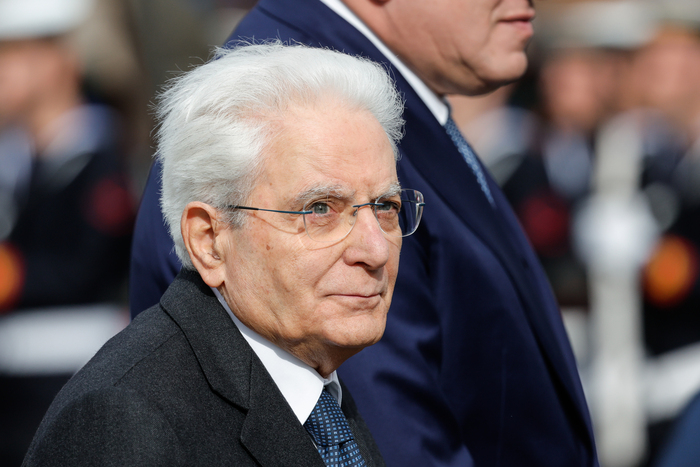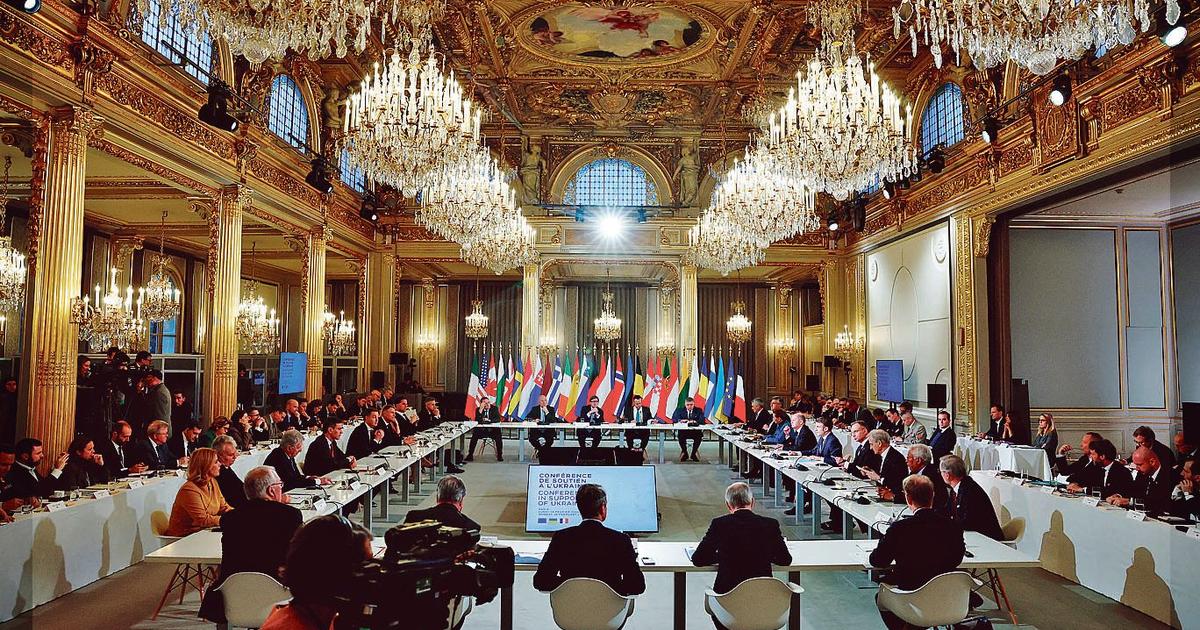More information
Scotland, the independence threat that takes Johnson's sleep
Around the new Scottish challenge, one thinks of the irony that in a country whose official name includes the adjective "united", the concept of national unity does not exist as such.
In the United Kingdom, paradoxically, the concept of the Union happily dissolves in centuries of inveterate English pragmatism, so reluctant to define concepts and more comfortable developing its political life according to its uses and customs.
The notion of national unity - of deep Jacobin roots and therefore alien to the English feeling - is unknown on the British island.
It never occurred to English to codify what the Union consists of and there is not even a founding moment of the Union as it has been a process of gradual incorporation.
The UK was never born;
it was done.
Perhaps this explains why there is no name for the native of the United Kingdom (British would not be precise) or why during the 2012 Olympic Games in London, the national team was “
Team GB
” (relative to Great Britain) and not
“Team UK”
(relative to the United Kingdom) which would have been normal.
The extraordinary thing about the United Kingdom is that each territory has been incorporated separately and always by an act of Parliament approved for each nation. After several centuries of English invasions in Wales, which de facto already belonged to England, in 1536 the principality was incorporated de jure under Henry VIII. It was the time of the English Reformation and a restless Henry VIII wanted to secure the loyalty of Wales. Wales, which did not become a kingdom, is the only territory not represented on the
Union Jack.
Instead, the union of England and Scotland was forged under the Treaty of Union of 1707. Britain then sees the light. That Union was stimulated by the extraordinary failure in the Darien, when Scotland, without any experience in these conflicts, financed an expedition to found colonies in present-day Panama. The Caribbean disaster was such that a ruined Scotland was forced to join England by treaty. It is therefore not surprising that of the 25 articles of the Union Treaty, 14 deal with economic and fiscal matters to guarantee access to the English markets. In exchange for giving up having its own parliament, Scotland secured its own legal system and the maintenance of the Presbyterian church. Northern Ireland, on the other hand, joins the Union by default and with little pomp,It is made up of the six Protestant counties of the North that remain after the independence of Ireland in 1922.
No constitutional document creates the UK. Thus, no legal text regulates the four nations that comprise it. The Union is once again questioned by Scottish nationalism, which despite 300 years of success, threatens a second referendum. Looking back, it seems a sarcasm that it was precisely a Scottish king, James VI, the first to unite the crowns of England and Scotland. They bordered on all the intellectual, political, social and educational advances that took place during the so-called
Scottish Englightment
and that would have been impossible in an isolated and ruined Scotland. It was precisely during the British Empire that Scotland excelled in providing excellent administrators and managers who handled affairs throughout the British territories.
Except for the exceptional case of Northern Ireland (which has a recognized right to join Ireland), the United Kingdom does not recognize the right of self-determination of its territories, which in practice means that Scotland cannot unilaterally leave the Union . It does not even have a right to call an independence referendum. The best it can hope for, as it already happened in 2014, is to ask the British Government to temporarily transfer the power to call a referendum of this nature.
It is well known that the United Kingdom does not have a codified constitution and consequently there is no concept of national unity. In Spanish or French law, the unity of the nation is essential since national sovereignty rests precisely with the people themselves. This brings us immediately to the key concept, that of sovereignty. While in the United Kingdom the British people are not sovereign as their parliament is, in Spain it is the Spanish people - subject to national sovereignty - who decide what Spain is. It is understood that the concept of national unity is not so relevant in a country that does not know national sovereignty.
Disraeli himself warned us in the late nineteenth century that England is governed not by logic but by Parliament. As the United Kingdom does not have a codified constitution, its territorial organization is spontaneous and open. In most constitutions, the legislator designs how the country is organized territorially. The opposite case occurs in the United Kingdom, which has no forecasts on its regional structure. While in Spain it is the constituent who guides the autonomic or regional system, in England it is Parliament - always sovereign - who decides at all times and according to the circumstances on how to organize territorially.
A few decades ago the demands of Scottish nationalism led the Labor government of the 1990s to lead what was called
devolution,
which simply consisted of "returning" powers to Scotland, Wales and Northern Ireland. It was a mere transfer of powers, but one that indirectly began to create - without intending to - a system with a federal tendency. These transfers were made
ad hoc
without counting on the institutional and legal framework of the federal nations. Overnight it went from a unitary state to a federalizing state.
As always happens when dealing with English affairs, the territorial organization of the British country is not reflected anywhere. It is a unique system in that it is not regulated as such and is asymmetrical because England, which brings together the majority of the population, does not have its own parliament. Furthermore, by virtue of the principle of the sovereignty of Parliament, the Westminster Parliament could legislate at any time and regain the powers that it once “returned”. There is no theory of the federal or autonomous state, contrary to what happens in Spain, Germany or the United States. Its current regional organization is simply a decision of the government in power.
It is paradoxical that the country that - made an empire - organized a quarter of the world, created new countries, divided territories, drew borders and designed new administrations, has not been able to emulate for itself that extraordinary administrative precision. In the background, in the Scottish question, the usual underlies, that England, more than a country, is an attitude towards political problems and not a consciously organized nation. In a thousand years of British history there are few "constitutive" moments that break with the past. Its institutions evolve gradually and its territorial system is open, asymmetric and circumstantial. Debating the concept of the nation or its territorial organization has always seemed to English an indulgence to abstract thought and a continental impertinence.
But the Union's problem is not Scottish nationalism.
It is England.
The country has to resolve the fit of England in its regional structure.
The United Kingdom is slowly approaching a constitutional crossroads as sooner or later the overflowing passions of Scotland will put the Union in luck.
With Scottish nationalism doomed to repeat the Darien's mistake, British institutions, forged in that slow forge of history, have before them the task of ensuring that the United Kingdom remains, in effect, a united kingdom.
Eduardo Barrachina
is a lawyer and president of the Spanish Chamber of Commerce in London.

/cloudfront-eu-central-1.images.arcpublishing.com/prisa/HSGQ4HMFVFGA5FDOIRUZFJ6GKI.jpg)









/cloudfront-eu-central-1.images.arcpublishing.com/prisa/KMEYMJKESBAZBE4MRBAM4TGHIQ.jpg)



